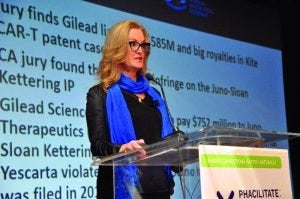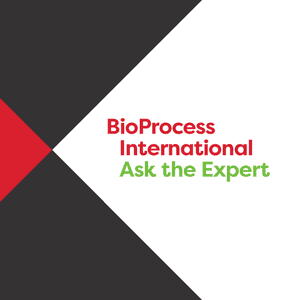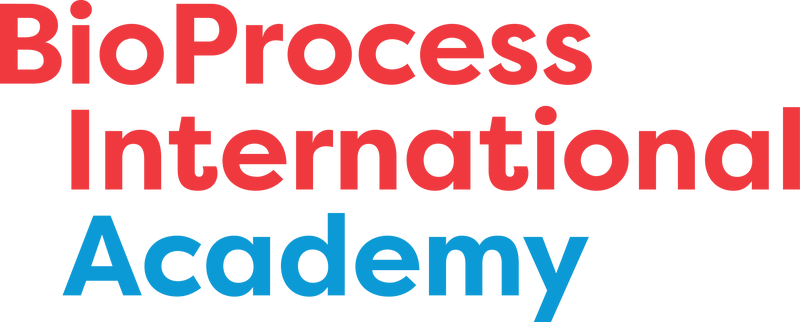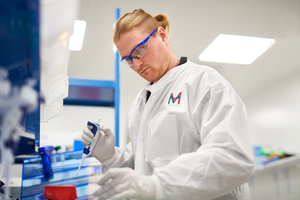Patient Access Tops the List of Advanced Therapy Milestones at Phacilitate 2020

Falcon Therapeutics CEO Susan Nichols presents her keynote at Phacilitate 2020.
(WWW.PHACILITATE.COM)
In a highly anticipated presentation at the 2020 Phacilitate Leaders World event — part of Advanced Therapies Week, along with the World Stem Cell Summit in Miami, FL — Susan Nichols (chief executive officer for Falcon Therapeutics), highlighted 10 events from 2019 that drove conversation, investment, and innovation in regenerative medicine. Although clustered regularly interspaced short palindromic repeats (CRISPR), business consolidations, and production capacity powered the cell and gene therapy (CGT) space in 2019, a new proactive focus on patient access topped Nichols’s roundup. Here, in reverse order, is her full list.
10: Patent Infringement Upheld: In December 2019, a jury found Kite Pharma (Gilead Sciences) guilty of infringing a patent exclusively licensed by Juno Therapeutics (Bristol-Myers Squibb, BMS) from researchers at the Memorial Sloan Kettering Cancer Center. The patent in question relates to technology used in Kite/Gilead’s Yescarta (axicabtagene ciloleucel) chimeric antigen receptor (CAR) T-cell therapy. The jury’s decision required Gilead to pay US$585 million in addition to 27.6% in royalties (totaling $752 million), to BMS and Sloan Kettering, resolving a case filed a day after Yescarta gained approval in October 2017. In a postscript that well could feature in Nichols’s next list, BMS filed a January 2020 motion to exact punitive damages that would raise Gilead’s penalty to $1.5 billion.
9: CRISPR Therapy Trials: Vertex and CRISPR Therapeutics opened clinical trials for the investigational therapy CTX001, intended to replace defective genes that cause β-thalassemia and sickle-cell disease. In November 2019, the companies announced positive efficacy data from their first two patients. Meanwhile, Editas Medicine and Allergan initiated clinical trials for their own CRISPR-based candidate, AGN-151587 (EDIT-101), which treats Leber congenital amaurosis 10 (LCA10), an inheritable condition that causes blindness. “The significance is [that] CRISPR therapies have finally arrived in the clinic,” Nichols said.
8: In-House Manufacturing: With a dearth of third-party capacity, especially for viral-vector production, major CGT players have augmented their internal networks. Novartis acquired a Colorado facility from AstraZeneca to support gene-therapy production. That deal came along with the purchase of contract development and manufacturing organization (CDMO) CellforCure. Pfizer, meanwhile, ramped up capacity in August with a $500 million investment to build facilities for production of recombinant adenoassociated virus (rAAV) vectors used in gene therapies and vaccines.
In March 2019, bluebird bio cut the ribbon on a 125,000-ft² facility in Durham, NC.
Precision BioSciences opened a current good manufacturing practice (CGMP) facility in North Carolina dedicated to genome-edited allogeneic CAR T-cell therapies. Gilead’s Kite continued to increase its footprint with a facility in Frederick County, MD, expected to begin commercial production by late 2021. Regenxbio announced in May that it was building a plant at its Rockville, MD, headquarters to support NAV technology–based vectors — used in its gene therapy candidates — at scales up to 2,000 L. And Audentes Therapeutics laid plans to add 8,000 L of capacity by expanding an AAV manufacturing site in San Francisco, CA. Later in 2019, Astellas cited internal manufacturing capacity as a major driver in its $3 billion acquisition of Audentes.
7: Johnson & Johnson Data at ASH: Positive data from December’s American Association of Hematology (ASH) meeting in San Diego, CA, bolstered the sector, Nichols said. JNJ-4528, a CAR T-cell therapy directed at B-cell maturation antigen (BCMA), reported a 100% remission rate and response from its phase 1b–2 CARTITUDE-1 trial. 69% of patients showed complete remission or better. Licensed from Nanjing Legend in a $350 million deal, that candidate will move fully into a phase-2 study this year. BMS and bluebird bio reported positive news as well: a 73.4% overall response rate in a phase-2 KarMMa trial of their BCMA-targeted CAR-T candidate, idecabtagene vicleucel.
6: Vertex Acquires Semma: A $950 million deal, announced in September 2019, adds Semma Therapeutics — which focuses on stem-cell–derived human islets as a possible cure for type 1 diabetes — to Vertex’s growing regenerative-medicine portfolio. Nichols pointed out that the deal represents Vertex’s entry into the cell-therapy space, complementing its move into gene editing with the acquisition of Exonics and a research expansion with CRISPR Therapeutics. It’s also a significant investment in cell therapies for large indications other than cancer.
5: Astellas Buys Audentes and Xyphos: As noted above, Astellas acquired Audentes for $3 billion. But the Japanese pharmaceutical company also bought South San Francisco–based CAR technology developer Xyphos Biosciences as part of an end-of-year buying spree. Nichols stated that these deals signify that medium-sized pharmaceutical companies may be using advanced therapies to grow and expand.
4: Service-Provider Mergers, Acquisitions, and Consolidations: Capacity is at a premium, and 2019 saw CDMOs scrabbling to secure capabilities. Thermo Fisher acquired Brammer Bio for $1.7 billion, then Catalent paid $1.2 billion to add Paragon Bioservices to its offerings. Both marked their respective companies’ first moves into gene-therapy services. Hitachi Chemical Advanced Therapeutics Solutions entered Europe by acquiring German cell-therapy manufacturer apceth Biopharma. And cell-therapy company Cognate acquired gene and viral-vector manufacturer Cobra Biologics.
3: Big Licensing Deals: Last year also saw a flood of licensing deals with large upfront payments. Roche is paying over $1 billion up front for extra-US rights to Sarepta Therapeutics’s Duchenne muscular dystrophy (DMD) gene therapy. Genentech (a member of the Roche Group) entered a $300 million deal with Adaptive Bio for access to a T-receptor–discovery and immune-profiling platform in a deal that ultimately could be worth up to $2 billion. As noted above, Vertex inked a $175 million deal with CRISPR Therapeutics for its gene-therapy pipeline.
2: Fuel for the Fire: Growth in “medium pharma,” major licensing deals, and CDMO consolidation did characterize 2019. But big-pharma buying power also shaped the CGT space. BMS bought Celgene for a whopping $74 billion, bringing with it several CAR-T programs. Roche’s $4.8 billion acquisition of Spark also was significant — as were Biogen’s $877 million purchase of Nightstar Therapeutics, Pfizer’s stake in and option to buy out Vivet, and Bayer’s acquisition of remaining shares in BlueRock Therapeutics. Nichols said, “These signal that ‘big pharma’ is optimistic [about] mergers and acquisitions in the advanced-therapy space and the value that those therapies can bring.”
1: Patient Access: The business model for CGTs differs greatly from those of traditional pharmaceuticals and biologics, and patient access poses a challenge. With the arrival on the market of Zolgensma gene therapy and its $2.1 million price tag, pricing conversations have changed, and all parts of the industry are forced to address how to manage patient access. That drug represents a life-or-death conundrum for 68% of pediatric patients with spinal muscular atrophy 1 (SMA1). Patients must be dosed before the age of two, yet few places in the United States offer screening before that age.
“We need to work as an industry to ensure [that] reimbursement and access [are] in sync with approvals,” said Nichols. However, she added, “we must move the conversation to the state level” and bring state Medicaid and insurance companies to the core of the conversation. 2019 showed that change is here. Nichols says that “patient advocacy voices are loud” across all indications. Meanwhile, Novartis’s proposed lottery-style free-drug program — despite some criticism — indicates that industry is exploring ways to improve access.
Based in Montpellier, France, Dan Stanton is founding editor
of BioProcess Insider ([email protected]) online at
https://bioprocessintl.com/category/bioprocess-insider, where this article originally appeared.
You May Also Like





